Rolling Rocks: the digital translation of tabletop gaming
High rollers.
I've been rolling dice my whole life. Sometimes in a metaphorical sense, like that time on the Catford to Bromley bus when I sat next to the skittish chap jangling a carrier-bag of cutlery (3+4: "safe, nothing happens"). More frequently, though, it's been accompanied by the satisfying clickety-clack of polished polyhedrons tumbling across a tabletop. Through the years I've repelled the frenzied mass of tooth and claw with a sole surviving Terminator, hacked apart gigantic spiders in an underground lair and, on more than occasion, fallen asleep drunk in the corner of a tavern ("miss 1 turn"). This is how legends are born.
While nothing can replace the tangible pleasure of gathering with friends to finger quality card-stock, coo over myriad counters and revel in one another's misadventure, it's not always easy to find the time to do so. It's here, in the downtime between campaigns, that Games Workshop's willingness to embrace the digital licensing of its tabletop products can help see you through to that next weekend earmarked for questing. Much like the dice rolls on which many of its games are predicated, the digital representations of these licences can be hit and miss affairs. But a concerted attempt to capture the spirit of the board game experience always counts for a lot in my book. With this in mind, the recent efforts of Rodeo Games, Full Control and Nomad Games have prompted me to coax from them the story of their own stab at glory with Warhammer Quest, Space Hulk and Talisman.
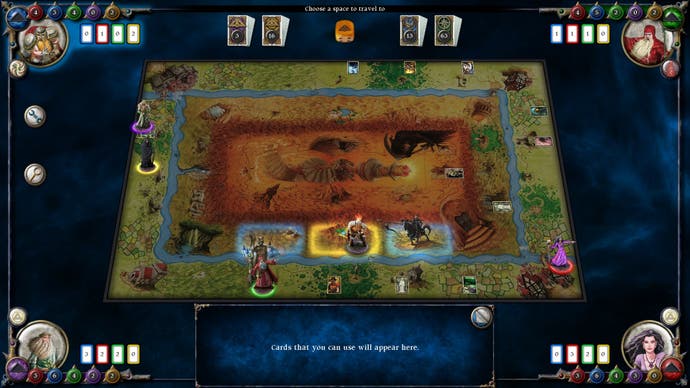
Setting the board
Fittingly, there is a degree of serendipity in the manner that each of the teams came to be custodians of their respective projects. A quirk of seating assignment saw two of Rodeo's number sat adjacent to Jon Gillard, Games Workshop's licensing director, on a plane to E3. The fact that Gillard happened to be playing Rodeo's own Hunters on his iPad gave the pair the perfect means of introduction. Unsurprisingly, the team's creative director Ben Murch remembers it as "pretty much the best meeting we had all week." A similar chance meeting befell Full Control CEO Thomas Lund at GDC. A chance encounter with a conference delegate in a hotel lobby turned out to be particularly fortuitous when the gentleman later introduced himself as Games Workshop co-founder, Ian Livingstone. With the then Warhammer 40K licence-holder THQ soon to be slain by pernicious market forces, the path before Lund opened-up. Full Control wasn't the only developer to emerge from the wreckage of THQ with a Games Workshop licence. Before forming Nomad Games, key members of the team worked at THQ Digital on the Warhammer 40K Kill Team licence but were cut loose soon after completing of the project as the beleaguered publisher scrambled to salvage its core business. Jon Gillard asked if members of the team would be interested in any other Games Workshop licences and when Nomad discovered it had a resident Talisman expert in its midst the team set its sights on a digital recreation of the 30 year-old board game.
Pitches followed and all three converted; Rodeo secured 1995's Warhammer Quest, Full Control was awarded 1989's Space Hulk and Nomad nabbed Talisman, which is currently celebrating its 30th anniversary. Then the work began in earnest.
The adventure begins
With the licences secured, attention turned to how each of the three indie developers would go about breathing digital life into the cardboard, counters and plastic miniatures of decades old board games. Translating rules, stat tables and role-play books that can run to hundreds of pages into a palatable form of digital entertainment is no mean feat; doing so in a way that ensures even the uninitiated can comprehend it requires an impressive understanding of the source material and a tacit acknowledgement that you cannot please all of the people all of the time.
"It was fundamental for us to stick to what the board game was," insists Lund, speaking of his team's treatment of Space Hulk. "If you were to turn it into more of a video game, where you're just killing without challenge, then the actual game could turn into a boring thing because essentially it is a series of corridors and rooms with a single enemy type that you can easily slaughter at range. It would lose the soul of the game if it wasn't a challenge to play."
While some the industry's biggest blockbuster FPS titles seem to have thrived on this very template, Lund knew that it wouldn't wash with Space Hulk's passionate fan base. However, his desire to stick closely to the source material and attempt to preserve the essence of the board game brought with it inherent risks.
"Expectation management was key for us, because lots of people were perhaps expecting a Dawn of War-style game or something more action orientated. Some came to it expecting things like level progression and skill trees that just don't exist in the board game. We had to stick to our vision of making a board game with video game elements in it, rather than the other way around."
The choice of platform has also played a pivotal role in the development of all three titles and each has undoubtedly been shaped by the form and function of mobile gaming. Rodeo has created Warhammer Quest solely for mobile devices, Talisman has been brought to mobile and PC by Nomad and while Space Hulk currently exists only on PC, a mobile launch is imminent. As such, all three have had to navigate the modest real estate offered by small screens, adhere to the bite-sized nature expected of a mobile experience and still support the prolonged play that tabletop fans demand.
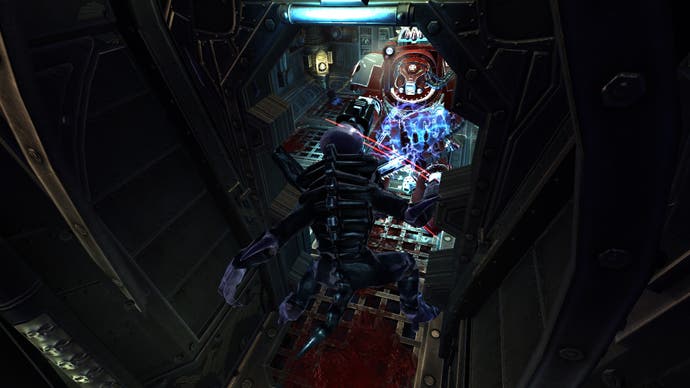
"Capcom and Red Rooster had a go [at Talisman] and one of the key problems they cited was the fact that these games can take a long time to play," explains Nomad's commercial director Don Whiteford. "In the mobile age where people just want to have a quick burst of gaming, this was something that we knew we'd have to tackle as a potential problem."
Nomad's answer was to first develop the single-player experience, Talisman Prologue, not only to test the market before pushing ahead with more expensive and labour intensive multiplayer but also to satisfy itself that the board game concept was viable, enjoyable and easy for players to follow on a mobile device. The project was successful enough to facilitate Nomad's creation of Talisman Digital Edition, which recently launched as part of Steam's Early Access initiative and includes four-player local multiplayer, a recently added character customisation tool and will soon receive online multiplayer support.
"With the money that we had at the time we knew that we could get to [Talisman Prologue] and then depending on how that went we could roll on from there," explains Whiteford. "We were wary that we might shoot ourselves in the foot with a single-player-only experience but we've found that it's worked well.
"Sure, in an ideal world, where you've got all the money to develop what you want we might have approached things differently but as an indie starting from scratch with a mountain to climb, that's how we chose to play it."
Nomad's approach has seen the Talisman board recreated in all its multi-region glory and the inclusion of its endearing plastic miniatures, to which art director Andy Bate has applied virtual paint via Photoshop. To all intents and purposes it is a digital representation of the physical elements of the tabletop game, and the very definition of what a video game version of a board game should look like.
This contrasts with the approach taken by Rodeo, which has opted for a video game interpretation of a board game rather than a full blown recreation of its physical characteristics. This has led to the amendment and removal of some elements of the tabletop experience to better fit the design vision of the team, including relegating the dice rolls to a backend process.
"It's about working out what fits, what it's going to look like on screen, why it's there and whether there's a reason for it to be in the final game," explains Richard Brooks, Rodeo's technical director. "A good example is the lantern, which in the tabletop version is basically a mechanic for keeping all of your players together - but because our game is single-player we figured out that we didn't really need it. It would have created some nice graphical effects, but it didn't really have any purpose."
"We wanted to make Warhammer Quest into a roleplay adventure, slightly separate to the board game experience," adds creative director, Ben Murch. "We felt that if we were to show the dice rolls it might take you out of the experience that we were trying to create."
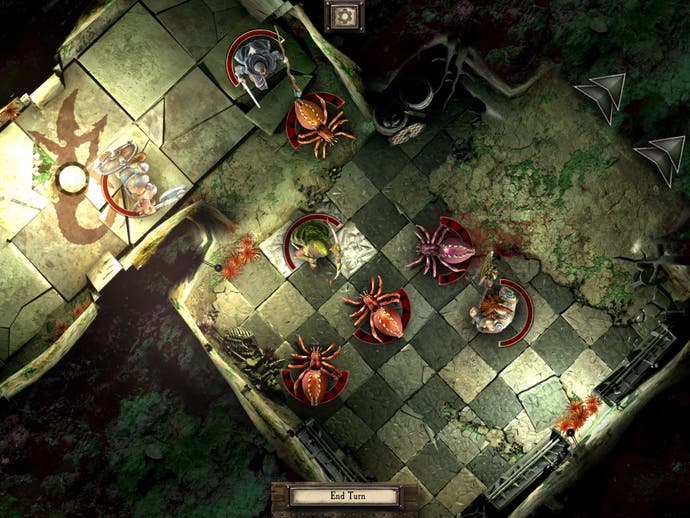
This design choice doesn't sit well with everyone, including Eurogamer's own Dan Whitehead and up until the release of Warhammer Quest, Lund had been considering adopting a similar practice as part of his original vision for Space Hulk. With its chunky 3D models and action-cam, Space Hulk originally appeared as a more video game orientated take on the classic table-top title, until Lund experienced first-hand how it felt not to see your dice rolls. "I'm standing on the shoulders of giants a little bit with that," admits Lund. "I was playing [Rodeo's] Warhammer Quest for a long time and realised that I missed not being able to see the dice rolls. So, we took that back to Space Hulk and decided to include that feedback as an optional mechanic."
This notion of visible dice rolls is mostly an aesthetic consideration, as opposed to a change in any fundamental game mechanic. The dice are still being rolled in the background, Rodeo has simply opted for a slicker visual interface with an accepted trade-off against perceived fairness. The developer has also made changes to some of the drier elements associated with consulting tables in hefty role-play books by implementing a number of visual flourishes and attempting to highlight the different combat abilities of its various characters, even as it chooses to bury a little too much pertinent info in its in-game journal - like why your "deadly accurate archer" is initially so useless with her bow.
The concise communication of mechanics is something that Nomad has had to work particularly hard to incorporate into Talisman, where a number of actions can be performed by its four players out of turn order. To contend with this, Nomad has opted for having certain elements of the UI glow to denote that action can be taken without constantly prompting each player to ask if they want to respond to the onscreen action. It's a simple but effective solution that offers a glimpse of the factors that must be considered when tackling mechanics that are second nature for friends sat around a table but become more complicated when transported to the digital realm.
Forging ahead
Rodeo, Nomad and Full Control have all worked hard to leverage the strengths of their chosen licences and lavish care and attention upon them. Certainly, all three contain elements that could be improved, rough edges that could be smoothed and the occasional design choice that doesn't quite gel, but the reverence for the source material is evident and there's a clear intention to do the tabletop versions proud.
To continue in this vein, Nomad plans to release all eight Talisman expansions and add online multiplayer, Rodeo intends to keep adding characters, maps and improve dungeon diversity in Warhammer Quest, and Full Control is soon to release a mobile version of Space Hulk and add additional campaigns. Of course, creating content for passionate and knowledgeable fans of any of Games Workshop's well established properties is undoubtedly a double-edged sword; they'll lambast any developer that fails to capture the essence of the tabletop experience but will also show hearty appreciation for those that get it right.
This camaraderie will be familiar to weekend warriors the world over. Nothing can trump the joy of convening with friends to cover a tabletop with games, beers and snacks, but it's heartening to know that the legacy of such beloved board games needn't be held to ransom by opportunistic eBayers or fall victim to an army of dust bunnies. May the dice continue to roll and the legends be born anew.
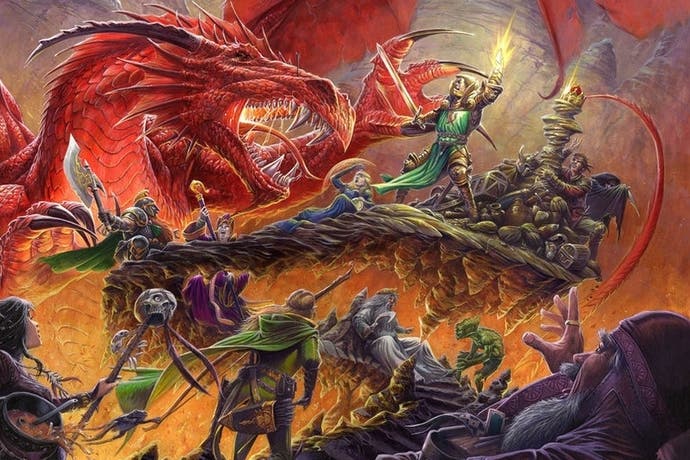





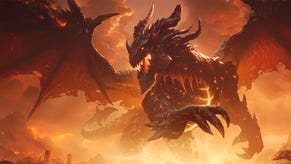
.png?width=291&height=164&fit=crop&quality=80&format=jpg&auto=webp)

